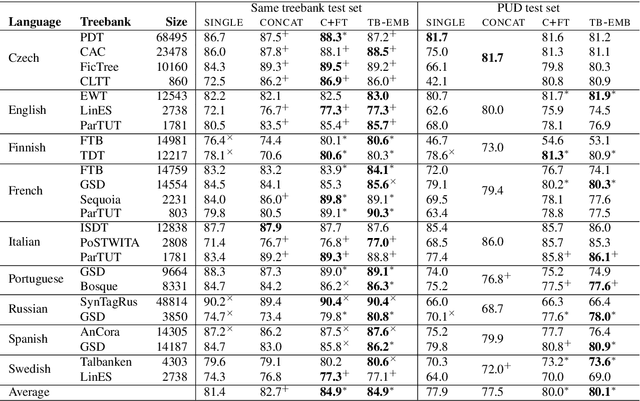Parser Training with Heterogeneous Treebanks
Paper and Code
May 14, 2018

How to make the most of multiple heterogeneous treebanks when training a monolingual dependency parser is an open question. We start by investigating previously suggested, but little evaluated, strategies for exploiting multiple treebanks based on concatenating training sets, with or without fine-tuning. We go on to propose a new method based on treebank embeddings. We perform experiments for several languages and show that in many cases fine-tuning and treebank embeddings lead to substantial improvements over single treebanks or concatenation, with average gains of 2.0--3.5 LAS points. We argue that treebank embeddings should be preferred due to their conceptual simplicity, flexibility and extensibility.
* 7 pages. Accepted to ACL 2018, short papers
 Add to Chrome
Add to Chrome Add to Firefox
Add to Firefox Add to Edge
Add to Edge